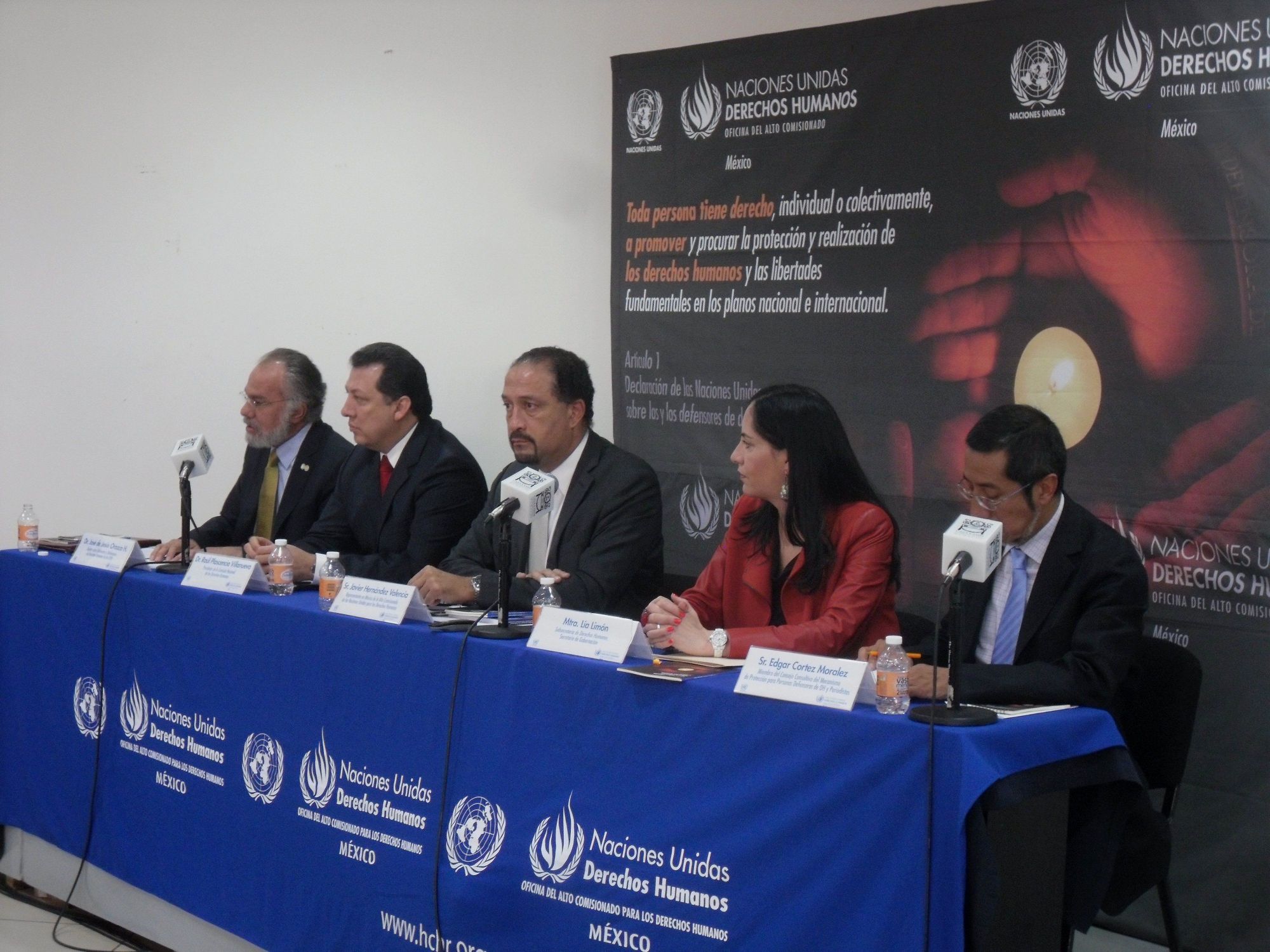Mexico, D.F. - June 26th, 2013. The United Nations Office of the High Commissioner for Human Rights in Mexico (OHCHR) presented today its Informe Sobre la Situación de las y los Defensores de Derechos Humanos en México: Actualización 2012 y Balance 2013 (Report on the situation of human rights defenders in Mexico: update 2012 and balance 2013). The document is the third in a series of reports by the OHCHR on the topic and covers the period from November 2010 to December 2012, illustrating the serious risk situation of human rights defenders in Mexico.
The publication takes into account 89 acts of aggression documented by the OHCHR against human rights defenders, their organizations or family members. Javier Hernández Valencia, Representative in Mexico of the OHCHR, emphasised the high levels of impunity regarding attacks against human rights defenders. Out of 89 cases documented, criminal investigations were carried out for only 37, in only 3 cases those responsible were detained and no firm sentences were issued for any case.
According to the report, the states with the highest number of acts of aggression against human rights defenders were Oaxaca, Chihuahua, Coahuila, Guerrero and the Federal District. The most common types of aggression are threats (38%), arbitrary legal processes (13%), harassment (12%), arbitrary detentions and assassinations (11% each). Moreover, it has not been possible to identify those responsible in 39% of cases. Non-state actors were marked as presumed responsible for the aggressions in 38% of the cases, while State actors were connected to 23% of the documented cases.
Human rights defenders who were victims of aggressions work mostly on the rights of the migrant population, civil rights, economic, social, cultural and environmental rights, as well as women's and indigenous rights.
Hernández Valencia argued for the importance of the effective implementation of the Protection Mechanism for Human Rights Defenders and Journalists, one year after the publication of the Law that created it. He said that the main challenges to its proper functioning are the lack of human and economic resources, cooperation between federal entities and its effective implementation. The Interior Ministry's Subsecretary for Human Rights, Lía Limón García, made a commitment to strengthen the Mechanism and to launch a public campaign to raise the profile of human rights defenders.
Representing civil society, Edgar Cortéz, from the Instituto Mexicano de Derechos Humanos y Democracia (Mexican Institute for Human Rights and Democracy) and member of the Mechanism's Governing Board, called on the Interior Minister, Miguel Osorio Chong, and President Enrique Peña Nieto to publicly commit to the protection of human rights defenders and journalists, prioritizing the implementation of the Mechanism. Cortéz urged Lía Limón to provide the Mechanism with an operative team and the necessary budget for protection measures.
The publication revisits the recommendations made in the 2009 report and analyzes their level of compliance. The OHCHR called on the Mexican State to publicly recognize the work of human rights defenders and to act for their protection, especially through effective investigations into attacks against them and the legal sanction of those responsible.

